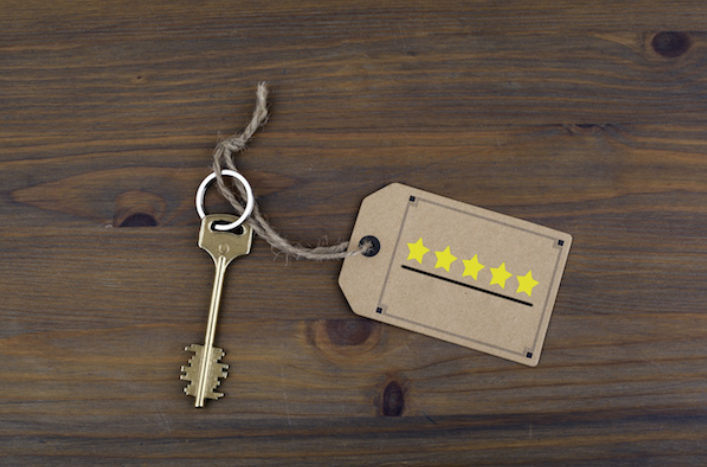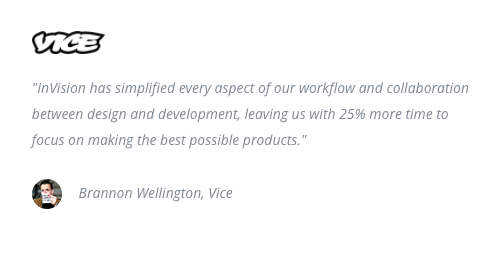Nowadays, it's quite common to buy items sight unseen. You're in the market for a bathroom scale? Go online and buy one. Need a new door mat? Same thing.
But how do people make that decision? Some might talk to their friends and family—their personal networks that they trust.
But increasingly, people trust the words of complete strangers. I'm talking, of course, about online reviews.
But increasingly, people trust the words of complete strangers. I'm talking, of course, about online reviews.
Reviews are everywhere. But what do they bring to your website?
Think about it this way: when you’re shopping around for a new pair of running shoes, certain questions may arise. How does the shoe fit? Does it run narrow? Is it true to size? How's the arch support? What's the shipping like from this company?
If your site doesn’t have the information a customer is looking for—including the answers to these types of questions—they may search for them on other websites.
In fact, people increasingly demand reviews. Only 1% of customers consider product reviews unimportant.
Just as importantly, the majority of consumers say they need to read 4-10 reviews before they can trust a business.
If your site doesn’t have the information a customer is looking for—including the answers to these types of questions—they may search for them on other websites.
In fact, people increasingly demand reviews. Only 1% of customers consider product reviews unimportant.
Just as importantly, the majority of consumers say they need to read 4-10 reviews before they can trust a business.
Do reviews affect sales?
Ah, the all important question.
And the all important answer is: yes, without a doubt.
There are countless case studies out there testifying to the impact of reviews on sales. According to one estimate, the presence of reviews can increase sales by up to 18%!
And the all important answer is: yes, without a doubt.
There are countless case studies out there testifying to the impact of reviews on sales. According to one estimate, the presence of reviews can increase sales by up to 18%!
Why are reviews so effective?
One of the reasons reviews can have such a strong impact on sales is that they're a form of highly trusted social proof.
First of all, what is social proof?
Social proof is when people look to the actions of others to guide their own.
For online retailers, social proof means converting new customers by highlighting the positive experiences of previous ones.
Social proof is increasingly trusted over other forms of marketing and branding.
For example, just 34% of millennials say they trust television advertising, while 68%—twice as many—trust website reviews, according to Website Builder.
Twice as trusted—that's the power of social proof.
First of all, what is social proof?
Social proof is when people look to the actions of others to guide their own.
For online retailers, social proof means converting new customers by highlighting the positive experiences of previous ones.
Social proof is increasingly trusted over other forms of marketing and branding.
For example, just 34% of millennials say they trust television advertising, while 68%—twice as many—trust website reviews, according to Website Builder.
Twice as trusted—that's the power of social proof.
I like the idea of social proof but I'm scared of bad reviews
If there's a downside to social proof, it's that you're opening yourself up to criticism that you might not want. After all, everyone gets a bad review once in awhile. Why advertise it?
If you want social proof but you're worried about negative perception, you have a couple options.
Option 1: Use testimonials
Testimonials are a form of social proof that comes without the risk of negative coverage because it's curated by you.
Testimonials frequently come in the form of case studies or pull quotes from previous customers who had a positive experience with the company.
Here is an example of one from Invsion's homepage:
If you want social proof but you're worried about negative perception, you have a couple options.
Option 1: Use testimonials
Testimonials are a form of social proof that comes without the risk of negative coverage because it's curated by you.
Testimonials frequently come in the form of case studies or pull quotes from previous customers who had a positive experience with the company.
Here is an example of one from Invsion's homepage:
All of this begs the question: if you can control the content and ensure it's positive, why would you use anything else?
The big problem with testimonials is that people don't seem to trust them that much. When visitors see a pull quote singing the praises of the site they're on, many of them assume it's simply a fake.
How many?
Close to 90% of consumers simply write-off marketing testimonials as fake! Yikes. Obviously, you don't want your social proof having the opposite effect—after all, legitimacy is at the heart of social proof.
That's why we favor another option:
Option 2: Embrace the bad reviews
The big problem with testimonials is that people don't seem to trust them that much. When visitors see a pull quote singing the praises of the site they're on, many of them assume it's simply a fake.
How many?
Close to 90% of consumers simply write-off marketing testimonials as fake! Yikes. Obviously, you don't want your social proof having the opposite effect—after all, legitimacy is at the heart of social proof.
That's why we favor another option:
Option 2: Embrace the bad reviews
Unlike testimonials, reviews are heavily trusted. According to BrightLocal, 88% of people trust reviews as much as personal recommendations—that's the word of family and friends and others they know.
One of the main reasons reviews are so trusted is that they're perceived to be authentic. Unlike testimonials, review platforms include the good and the bad without favor or fear.
This means that readers can assume that reviews are more or less true, and a big part of that is the presence of bad reviews.
If you only have good reviews (or just testimonials), people will assume that something fishy is going on.
Plus, bad reviews are an opportunity to show off your customer service. If someone complains in a review, it's a chance to respond publicly and make it right. And since 95% of customers will return if an issue is resolved quickly, you're also getting yourself repeat business!
One of the main reasons reviews are so trusted is that they're perceived to be authentic. Unlike testimonials, review platforms include the good and the bad without favor or fear.
This means that readers can assume that reviews are more or less true, and a big part of that is the presence of bad reviews.
If you only have good reviews (or just testimonials), people will assume that something fishy is going on.
Plus, bad reviews are an opportunity to show off your customer service. If someone complains in a review, it's a chance to respond publicly and make it right. And since 95% of customers will return if an issue is resolved quickly, you're also getting yourself repeat business!
Okay, you've convinced me. What now?
Your next step is to start collecting reviews!
There are tons of review platforms out there, including my personal (and biased) favorite, TrustedSite.
You're going to want to look for a few things when considering a platform:
1. Does it let me collect reviews from old customers?
This is important because emailing people who have bought from your store in the last 3-6 months and asking them for a review is how you're going to build your review base. A review base is going to give you a benchmark of trust that future customers will look to.
2. Does it let me respond to negative reviews?
As we discussed above, being able to respond to reviews is a critical part of a good platform.
3. How many reviews can I collect per month?
Many platforms limit the number of reviews or the number of emails you can send to customers in a given month. Think about how many orders you fill and how many review requests you'll need to send before choosing your platform.
4. How much does it cost?
This may seem like an obvious thing to consider, but some review platforms can get very expensive, very quickly. We're talking hundreds of dollars per month expensive. That's why it's important to consider how much upgrading from free to paid will cost.
There are tons of review platforms out there, including my personal (and biased) favorite, TrustedSite.
You're going to want to look for a few things when considering a platform:
1. Does it let me collect reviews from old customers?
This is important because emailing people who have bought from your store in the last 3-6 months and asking them for a review is how you're going to build your review base. A review base is going to give you a benchmark of trust that future customers will look to.
2. Does it let me respond to negative reviews?
As we discussed above, being able to respond to reviews is a critical part of a good platform.
3. How many reviews can I collect per month?
Many platforms limit the number of reviews or the number of emails you can send to customers in a given month. Think about how many orders you fill and how many review requests you'll need to send before choosing your platform.
4. How much does it cost?
This may seem like an obvious thing to consider, but some review platforms can get very expensive, very quickly. We're talking hundreds of dollars per month expensive. That's why it's important to consider how much upgrading from free to paid will cost.
Wrapping up
Now you've got the basics as to why social proof is so critical for your businesses success—it helps you sell more, makes you seem more authentic, and earns trust. Go out there and start collecting reviews to take advantage of this powerful marketing concept!
 Sebastian Shepard Sebastian is a content strategist for TrustedSite, which provides marketing and security solutions for online businesses.
Sebastian Shepard Sebastian is a content strategist for TrustedSite, which provides marketing and security solutions for online businesses.










